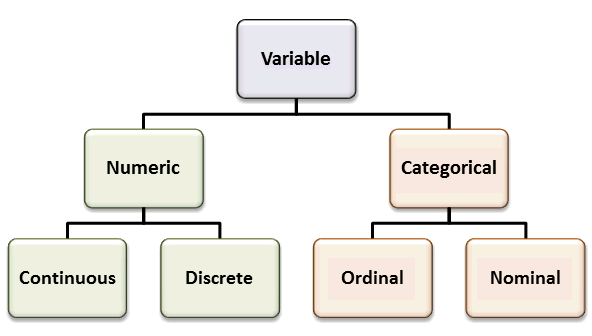One thing that has always tripped me up when trying to learn new methods in statistics is understanding what type of features/variables can this method be applied to.
The variable types that especially trip me up are
- Discrete
- Continuous
- Categorical
- Nominal
- Ordinal
What are some examples and simple explanations of these and other commonly used variables types.

